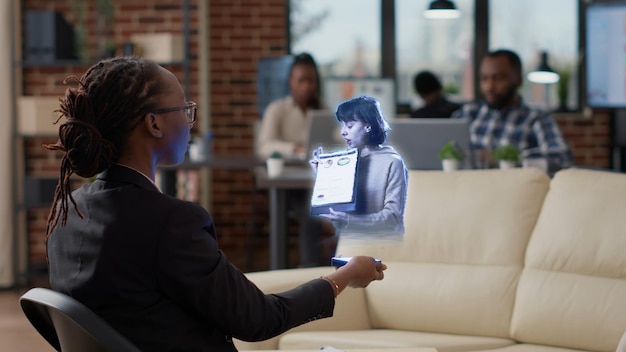How AI is Revolutionizing Interview Processes
Artificial intelligence (AI) is significantly transforming recruitment, especially the interview process. By automating scheduling, improving candidate screening, reducing bias, and enhancing interactions, AI is making hiring more efficient and effective for both recruiters and candidates.
- AI Scheduling: AI tools streamline interview scheduling, saving time and reducing errors.
- Enhanced Screening: AI improves candidate matching, increasing efficiency in CV screening.
- Bias Reduction: AI promotes objective decision-making, helping to build diverse teams.
- Dynamic Interviews: AI tools facilitate more engaging and personalized interview experiences.
In recent years, AI has emerged as a game-changer in recruitment. This technology not only reduces administrative overhead but also enhances the overall candidate experience. Research indicates that AI scheduling assistants can save professionals an average of 4.8 hours per week on meeting scheduling, leading to a 30–40% reduction in administrative burdens.
Streamlining Interview Scheduling
Scheduling interviews can often be a frustrating task, filled with back-and-forth emails. AI-powered tools have revolutionized this aspect by suggesting optimal times for both interviewers and candidates. This automation not only saves time but also minimizes human error, allowing recruiters to focus on finding the right fit for their teams.
Efficient Candidate Screening
For hiring managers, sorting through applicant CVs can feel overwhelming, especially during periods of rapid growth. AI has transformed this process by quickly scanning CVs, identifying key skills, and flagging candidates who meet job requirements. According to the Harvard Business Review, 67% of companies utilizing AI in recruitment report improved candidate matching and screening efficiency.
AI-driven recruitment systems leverage natural language processing (NLP) to read between the lines of CVs, uncovering potential candidates who might be overlooked by human recruiters. This technology ensures that hiring managers are presented with the most relevant applicants, speeding up the decision-making process.
Mitigating Bias in Hiring
Bias remains a significant challenge in recruitment. However, when used correctly, AI can help mitigate these biases. AI tools rely on data to make hiring decisions, which can lead to more objective and consistent outcomes compared to human judgment. By addressing unconscious bias, AI can assist companies in building diverse and inclusive teams.
According to a report by McKinsey, organizations with higher ethnic diversity enjoy an average financial advantage of 27% over their less diverse counterparts. In competitive industries where innovation is crucial, fostering a diverse workforce can be a strategic advantage.
Transforming Interview Interactions
AI is also reshaping how interviews are conducted. From AI-driven chatbots to video-interviewing platforms, the traditional interview format is evolving into a more dynamic experience. Chatbots can greet candidates, guide them through pre-screening questions, and adapt follow-up queries based on their responses, all thanks to NLP.
However, the use of chatbots can evoke mixed feelings among candidates. While some appreciate the convenience and speed, others find the experience impersonal, yearning for human interaction. Employers must strike a balance, using chatbots as helpful tools rather than cold gatekeepers.
Analyzing Candidate Responses
AI tools can do more than just facilitate interviews; they can analyze the conversation itself. By assessing speech patterns, tone of voice, and even non-verbal cues, AI provides hiring managers with deeper insights into a candidate’s communication style, confidence, and cultural fit. This level of analysis helps recruiters make more informed decisions and enhances the candidate experience.
Personalizing Interview Questions
One of the most innovative aspects of AI-enhanced interviews is the ability to generate specific, role-relevant questions. AI-driven systems can adapt questions in real-time based on the candidate’s CV and previous answers. For instance, if a candidate has a strong background in project management, the system might delve deeper into their leadership style or experience with specific methodologies.
This personalized approach not only engages candidates but also provides interviewers with richer insights. Candidates leave feeling that interviewers genuinely understand their skills and experiences, rather than simply checking off boxes against a generic list.
Conversational AI in Interviews
AI tools like ChatGPT are also making their mark in the interview space. They can conduct interviews that feel more like conversations than interrogations. By asking role-specific questions tailored to a candidate’s background, ChatGPT enhances the interview process, making it smoother and more interactive.
Employers looking to refine their interview questions can benefit from AI-generated suggestions, ensuring they cover all necessary aspects without the awkward pauses that can occur during traditional interviews.
Pre-Screening Candidates
AI’s influence begins even before interviews take place. By pre-screening CVs, AI ensures that only qualified candidates are invited to interview stages. This process not only saves time but also improves the overall quality of hires.
Conclusion
AI is undeniably revolutionizing the interview process, making it more efficient, objective, and engaging. By automating scheduling, enhancing candidate screening, and providing deeper insights into candidate interactions, AI is helping companies make better hiring decisions while improving the experience for candidates. As AI technology continues to evolve, its impact on recruitment is likely to grow, paving the way for a more streamlined and effective hiring process.
Reader Q&A
How does AI improve the scheduling of interviews?
AI tools can automatically suggest optimal times for interviews, reducing the back-and-forth communication and minimizing scheduling errors.
What role does AI play in reducing bias during hiring?
AI uses data-driven approaches to make hiring decisions, which helps mitigate unconscious bias and promotes diversity in hiring.
Can AI tools personalize interview questions?
Yes, AI can generate role-specific questions in real-time based on a candidate’s CV and previous answers, making the interview process more engaging.


Leave a Reply